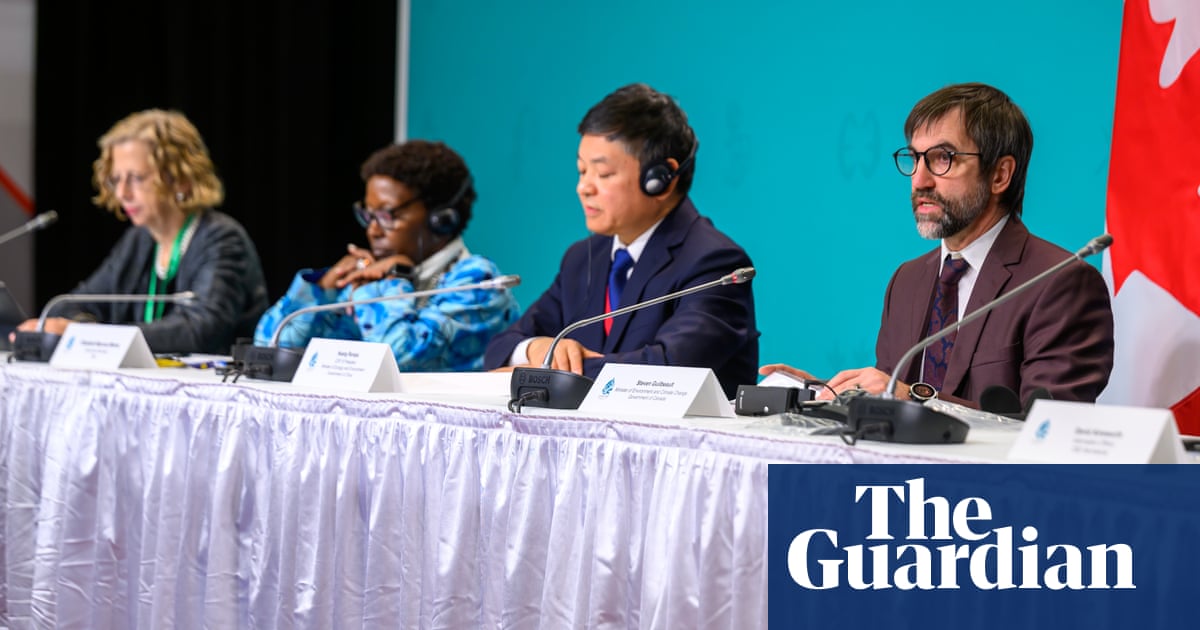
Divisions between developed and developing nations over who should pay to protect Earth’s ecosystems are threatening to derail a UN biodiversity summit after a group of developing countries walked out of discussions overnight.
In echoes of last month’s Cop27 climate summit in Egypt – where countries agreed to create a new fund to compensate loss and damage from global heating in vulnerable nations – countries from the global south left Cop15 talks on Wednesday due to disagreements over finance.
The Cop15 host, China, was organising crisis talks with heads of delegations on Wednesday to try to resolve the issue as more walkouts continued in a row over whether rich countries, such as China and Brazil, should get more aid for biodiversity.
“Nothing moves until finance moves,” said one observer close to the talks.
Some countries in the global south want a new fund to be created for biodiversity as part of the final agreement in Canada, alongside increased funding from richer nations. But wealthy donor countries in Europe and the global north are opposed to the creation of a new fund. They say that China, Brazil and other large economies, which have grown substantially in the last 30 years since the UN’s environmental treaties were agreed, should be contributing a lot more.
UN donor funding for biodiversity is currently targeted at key regions to protect vital ecosystems and stop ongoing harm. China, Brazil, India, Mexico and Indonesia are the top five historical recipients from the Global Environment Facility (GEF), and are to feature in the top five for the next $5.3bn (£4.3bn) funding cycle from 2022 to 2026. Many biodiverse nations from Africa, Asia and Latin America argue that they should get more money to pay for conservation.
“Developing nations are really upset. Talks have reached a crisis point. Developed countries need to provide more money,” said one negotiator who participated in the walkout.
Another source said: “Talks were making slow but steady progress through a strategy for resource mobilisation. We were discussing the most contentious question of whether we would establish a new biodiversity-specific international fund. It was already late and the real business of the night was already over. But the walkout sends a clear message that we need to work harder at listening to each other’s realistic red lines and trying to compromise.
“Brazil and China are the biggest recipients of GEF funding. Donor countries find it hard to swallow that so much of our overseas aid goes to them. So, we talk about broadening the donor base, ie adding parties like Brazil and China to the donor list rather than the recipient list.
“There is no doubt that the Brazilians are enjoying the ride, making it harder to work collaboratively, and perhaps even actively looking to bring down the whole thing. The Brazilian argument for a new fund is motivated in part by a drive to ensure they design a new system and never have to pay.”
Oscar Soria, campaign director of the activism organisation Avaaz, who is in Montreal for the talks, said the walkout showed that developing countries are tired of the behaviour of rich nations on biodiversity finance.
“Without money, this will turn into a weak deal, and Montreal will be the next Copenhagen. Developing countries left the meeting because they considered that it was impossible to make progress in the discussions because developed countries were not ready to compromise, and they invited the parties that are obstacles to the discussions to reflect on their positions in order to move forward at another point.
“After weeks of acting as if discussions could move forward without properly addressing the issue of financial resources, now parties are finally done with pretending. The game is finally on,” he said.
Find more age of extinction coverage here, and follow biodiversity reporters Phoebe Weston and Patrick Greenfield on Twitter for all the latest news and features


